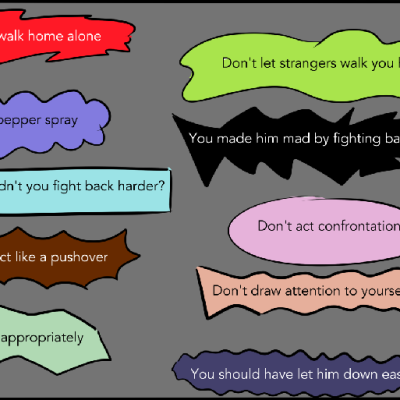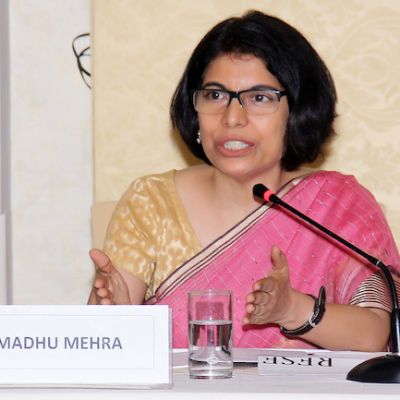consent
Whether it is family, society, gangs of thugs, or political parties, the threats to women’s freedom to choose in India are many and varied. To the above list, one may add the police and the judiciary as well.
मनुष्यों के बीच के किसी भी तरह के आपसी सम्बन्धों में सहमति का होना, इन सम्बन्धों की मज़बूत नींव की तरह होना चाहिए। हमारे समाज में हम इस ‘सहमति’ देने या ‘ना’ कह पाने के अधिकार पर प्रतिक्रिया के रूप में नयी तरह की हिंसा को देख पा रहे हैं। अधिकारों को प्रयोग करने की इस प्रक्रिया को केवल किसी व्यक्ति द्वारा अपने अधिकारों के प्रयोग के रूप में न देखकर इसे सभी के लिए सामूहिक रूप से किए जा रहे अधिकारों के प्रयोग के रूप में देखा और समझा जाना चाहिए।
First dates can be a source of both excitement and anxiety – the possibility of finding a connection someone new is endlessly exhilarating, but the uncertainty around what to expect can be unnerving
How does one negotiate the “delicate and complex” terrain of giving, receiving and respecting consent, and safely and effectively express sexual desire?
But here is the thing. In heterosexual relationships, how are women and men going to learn to see women’s desires if the world does not see them? If the world is shaped to conform to a certain type of man’s desires only? Where is consent without a diversity of desires and a galaxy of desirability?
Just like sex can be happy, sad, awkward, angry and so many other emotions, rather than the mere act of pounding, so is BDSM.
During my interaction with students as a part of sexuality education classes in schools, one frequently asked question by boys is,“How to charm a girl?”
I am a feminist, sex-positive and LGBT affirmative Clinical Psychologist. Having that openly and publicly stated means that my clients feel very safe discussing some of the more taboo topics, especially ones that we are made to feel ashamed of. One of these is the topic of the rape fantasy.
I think that the level of power that law makers, opinion builders and stakeholders wield over the more vulnerable and younger people in society is enormous. Yet, these actors have chosen to focus only on building a policy regime of sexual violence, even to the extent of allowing juvenile offenders to be treated as adult accused – without any corresponding effort to build a sex positive culture within which they may exercise agency.
In this issue of In Plainspeak, we interview Madhu Mehra, lawyer and feminist activist. She is a founding member and the Executive Director of Partners for Law in Development (PLD), a legal resource group on women’s rights.
Irrespective of the gender or sexual orientation of the people involved, the only way the scales of power can be balanced in favour of everyone involved, is through explicit, well-informed consent.
How does one negotiate the “delicate and complex” terrain of giving, receiving and respecting consent, and safely and effectively express sexual desire?
Emma Krenzer, a 19-year-old student has made waves with her art project, creating a map showing the lasting impact of human touch.
Mona Eltahawy, author of ‘Headscarves and Hymens: Why the Middle East Needs a Sexual Revolution’, speaks about how any social…
My formative years in BDSM[1]were heavily influenced by a series of books called Chronicles of Gor written by an author…














